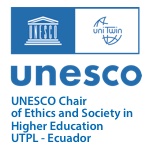The sublime enunciation of God’s discourse in the Theological-Political Theatise
Abstract
This article aims to analyze this social contextualization highlighted by Spinoza in his Theological-Political Treatise. And it also aims to analyze the political nature in which the prophets and their discourses are founded and constituted based on the social structure of that group in order to form the conception of the Christian God in which is based not just the belief but also the culture and society of the Hebrews, because contribute to the characterization of a Christian God that is seen as a validator of the morality, the costumes, the relationships, the language and the people. Through a collected bibliographic analysis, we present an introductory result that opens space for the debate about discourse, dialoguing with Spinozan thought and some contemporary authors of language, such as Wittgenstein, Fairclough.
Downloads
References
Fairclough, Norman. (2001). Discurso e mudança social. Traduzido por Izabel Magalhães. Brasília: Editora Universidade de Brasília.
Magalhães, Célia Maria. (2001). Reflexões sobre a análise crítica do discurso. Belo Horizonte: Faculdade de Letras, UFMG.
Machado, José Roney de Freitas (2016) «A construção do mundo humano pelos jogo de linguagem: da lógica à pragmática wittgensteiniana», Sapere aude 7 (14), pp.845-853.
Spinoza, Baruch de. (2004). Tratado teológico-político. Traduzido por Diogo Pires Aurélio. Lisboa: Imprensa Nacional-Casa da Moeda.
Wittgenstein, Ludwig. (1996). Investigações Filosóficas. Traduzido por José Carlos Bruni. São Paulo: Nova Cultural.
Copyright (c) 2021 ©️ Analysis

This work is licensed under a Creative Commons Attribution-NonCommercial-NoDerivatives 4.0 International License.








